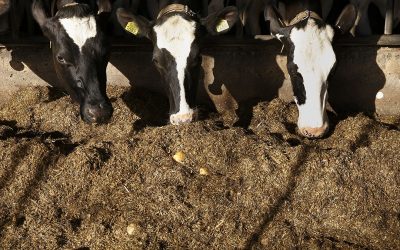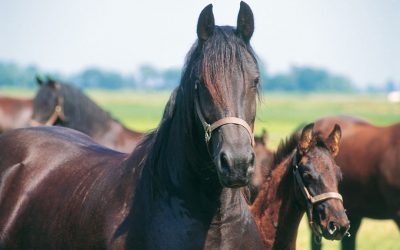Choosing the best essential fatty acids for horses
![Although an ideal ratio has not been identified for horses, concentrate feeds are typically formulated to have a ratio of less than 10:1 (omega-6:omega-3), which helps create a more favourable balance for the entire diet. [Photo: Shutterstock]](https://www.allaboutfeed.net/app/uploads/2020/12/001_204_rb-image-2698611.jpeg)
Essential fatty acids are needed to support health of horses. According to Kentucky Equine Research it is key that these fatty acids are directly available.
Essential fatty acids are not produced by the body, so they must be supplied by the diet. There are different products that contain fatty acids, such as corn oil and flaxseed. Corn oil contains 50 times more omega-6 fatty acids than omega-3 fatty acids, which is not the ideal ratio. Although an ideal ratio has not been identified for horses, concentrate feeds are typically formulated to have a ratio of less than 10:1 (omega-6:omega-3), which helps create a more favourable balance for the entire diet.
Advantage of fish oil
Flax is widely used in equine diets as a source of fat and omega-3s, predominantely alpha-linolenic acid (ALA); however, conversion of ALA to EPA (eicosapentaenoic acid) and DHA (docosahexaenoic acid ) is required to reap the health benefits associated with omega-3s, and conversion is not efficiently accomplished. This is where fish oil gains its advantage over flax, as it is a concentrated source of EPA and DHA. Supplementing with a marine-derived product such as EO•3, developed by Kentucky Equine Research (KER), is a good way to ensure that these fatty acids are directly available for their anti-inflammatory value and other health benefits, including improvements in glucose tolerance, reproductive function, and immunity.
Corn oil is not the devil
Increased inflammation is a clinical symptom of certain equine conditions, such as Cushing’s disease and inflammatory airway disease. For these horses, diet manipulation of the omega-3:omega-6 ratio is important, as adding corn oil, with its pro-inflammatory omega-6s, only adds insult to injury. But corn oil is not the devil. If a horse is prone to gastric ulcers or discomfort there may be justification to add a small amount of corn oil to his diet. One study found that daily supplementation of corn oil, about three tablespoons, resulted in reduced gastric acid output and this may offer an inexpensive way to support gastric health.
Source: KER











